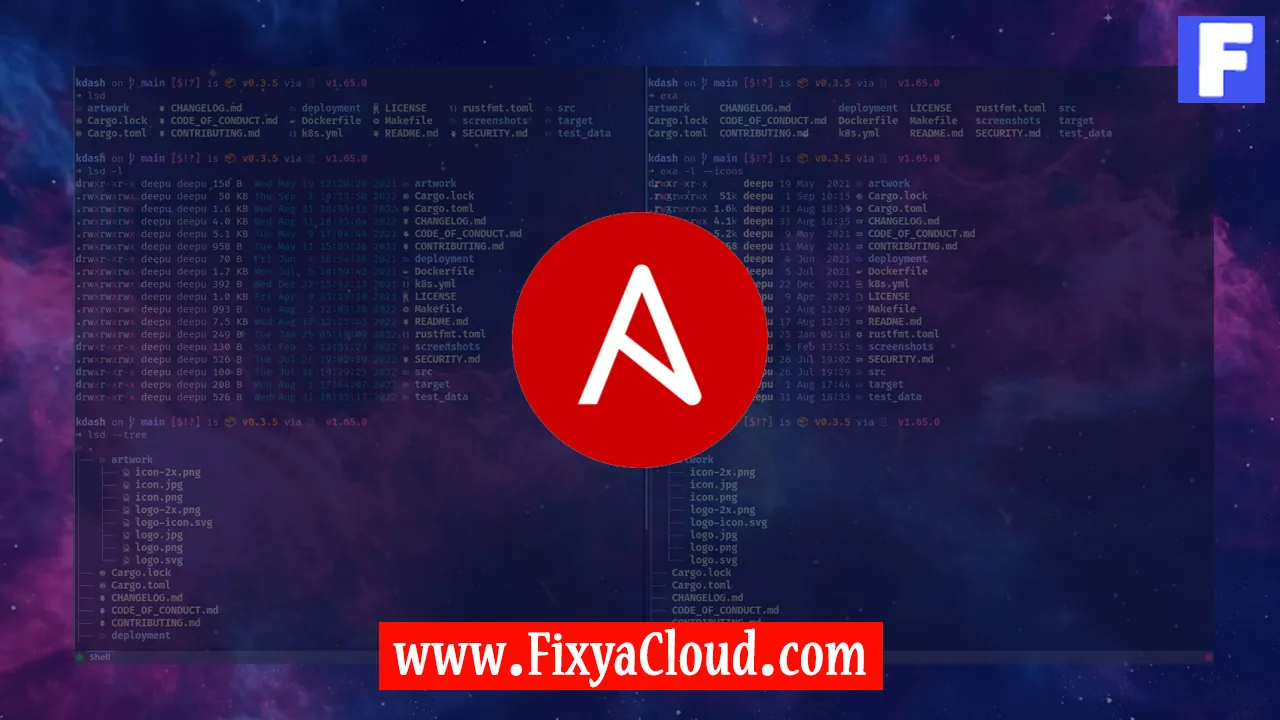15 Must-Have Ansible Modules for DevOps Engineers

In the ever-evolving landscape of DevOps, automation is the linchpin that streamlines processes and enhances efficiency. Ansible, an open-source automation tool, has become a cornerstone for DevOps engineers seeking to simplify configuration management, application deployment, and task automation. In this article, we'll delve into 15 must-have Ansible modules that can significantly empower DevOps professionals in their daily workflows.
1. Setup: Installing Ansible
Before diving into the modules, let's ensure Ansible is properly installed. Use the following commands:
sudo apt update
sudo apt install ansible
2. Basic Ansible Concepts
Understanding basic Ansible concepts is crucial. Ansible uses YAML syntax for its playbooks, and the core building block is a task defined in the playbook.
- name: This is a sample Ansible task
hosts: localhost
tasks:
- name: This task does something
command: echo "Hello, Ansible!"
3. File Management with 'copy' Module
DevOps often involves copying files across servers. The 'copy' module helps achieve this seamlessly:
- name: Copy a file to remote server
hosts: web_servers
tasks:
- name: Transfer file
copy:
src: /path/to/local/file
dest: /path/to/remote/location
4. Package Management with 'apt' Module
Managing packages is a common DevOps task. Ansible's 'apt' module simplifies package management on Debian-based systems:
- name: Ensure Nginx is installed
hosts: web_servers
tasks:
- name: Install Nginx
apt:
name: nginx
state: present
5. Service Management with 'systemd' Module
Controlling services is vital. The 'systemd' module allows you to manage services with ease:
- name: Ensure Nginx is running
hosts: web_servers
tasks:
- name: Start Nginx
systemd:
name: nginx
state: started
6. User Management with 'user' Module
Creating and managing users can be automated using the 'user' module:
- name: Ensure a user exists
hosts: all_servers
tasks:
- name: Create a user
user:
name: john_doe
state: present
7. Template Files with 'template' Module
The 'template' module allows you to use Jinja2 templates for file creation:
- name: Create a configuration file
hosts: app_servers
tasks:
- name: Use Jinja2 template
template:
src: /path/to/template.j2
dest: /etc/config.conf
8. Database Management with 'mysql_db' Module
Managing databases is a breeze with the 'mysql_db' module:
- name: Ensure a database exists
hosts: db_servers
tasks:
- name: Create a database
mysql_db:
name: my_database
state: present
9. Cloud Automation with 'ec2' Module
For cloud-based environments, the 'ec2' module facilitates AWS EC2 instance management:
- name: Create an EC2 instance
hosts: aws_environment
tasks:
- name: Launch EC2 instance
ec2:
key_name: my-key
instance_type: t2.micro
image: ami-12345678
state: present
10. Network Configuration with 'ios_command' Module
For network automation, Ansible provides modules like 'ios_command' for Cisco devices:
- name: Configure Cisco router
hosts: cisco_routers
tasks:
- name: Set hostname
ios_command:
commands:
- conf t
- hostname MyRouter
11. Docker Containers with 'docker_container' Module
Managing Docker containers is simplified with Ansible's 'docker_container' module:
- name: Ensure a Docker container is running
hosts: docker_hosts
tasks:
- name: Run a container
docker_container:
name: my_container
image: my_image
state: started
12. Git Operations with 'git' Module
Automate Git operations with the 'git' module:
- name: Clone a Git repository
hosts: git_servers
tasks:
- name: Clone repo
git:
repo: https://github.com/example/repo.git
dest: /path/to/local/repo
13. VMware Infrastructure with 'community.vmware.vmware_vm_vm_drs_rule' Module
For VMware environments, Ansible offers modules like 'community.vmware.vmware_vm_vm_drs_rule' for managing VM DRS rules:
- name: Ensure VM DRS rule is configured
hosts: vmware_environment
tasks:
- name: Configure VM DRS rule
community.vmware.vmware_vm_vm_drs_rule:
cluster_name: my_cluster
affinity_rule: true
14. Monitoring with 'nagios' Module
Integrate Ansible with Nagios for efficient monitoring:
- name: Add host to Nagios
hosts: nagios_server
tasks:
- name: Add host
nagios:
command: add_host
host: new_host
state: present
15. Security Compliance with 'os_hardening' Module
Ensure security compliance using Ansible's 'os_hardening' module:
- name: Harden server security
hosts: security_servers
tasks:
- name: Apply security hardening
os_hardening:
state: enforce
These 15 Ansible modules cover a broad spectrum of tasks, enabling DevOps engineers to automate various aspects of infrastructure management. As you explore and integrate these modules into your playbooks, you'll find your workflows becoming more efficient and your DevOps processes streamlined.
Related Searches and Questions asked:
That's it for this topic, Hope this article is useful. Thanks for Visiting us.
